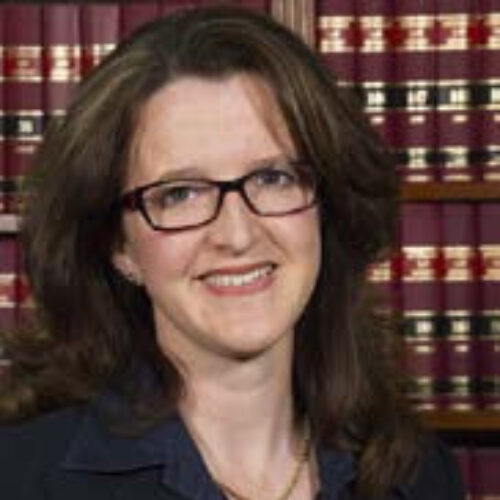- Winter 2023
- Capacity to know that the act was morally wrong BDO v The Queen [2023] HCA 16
Capacity to know that the act was morally wrong BDO v The Queen [2023] HCA 16

In BDO v The Queen [2023] HCA 16, the High Court considered the requirements of Queensland legislation which governs the criminal responsibility of children under the age of 14 years. While the applicable test differs in New South Wales, the decision is instructive on matters of evidence, procedure and principle in cases involving the common law presumption of doli incapax.
BDO was decided amid consideration in Australian jurisdictions of raising the age of criminal responsibility. At the time of writing, Victoria proposes to introduce legislation later in 2023 to raise the age of responsibility to 12 by the end of 2024, and possibly to 14 at the end of 2027. The ACT has introduced a bill proposing the minimum age be raised to 12 years as soon as the legislation is passed and, with exceptions, to 14 by 1 July 2025.1 Northern Territory legislation was passed in November 2022 to raise the age to 12 years, and is expected to commence before the end of 2023.2
Background
The appellant was aged between nine and 19 years during the period of the offences on an indictment. The indictment contained multiple counts of rape, and one of indecent treatment, of his sister, who was five years younger than him. He was convicted after a trial by jury of 11 counts of rape.
The High Court (Kiefel CJ, Gordon, Steward, Gleeson and Jagot JJ) unanimously allowed the appeal with respect to five of the 11 counts and entered a verdict of acquittal on those counts.
At the appellant’s trial, the jury asked whether between the ages of 10 and 14, ‘was it wrong or criminally wrong. Law says ought not do it. Does this mean they knew it was a crime or just a bad thing to do?’
In response, the trial judge directed the jury that the prosecution did not have to prove the appellant knew that his act constituted a crime or was illegal, and that knowledge that it amounted to a criminal offence was not required. Further, that it had to be proved that at the time he did the act, the appellant had the capacity to know that he ought not do it, and the question was whether the prosecution had proven beyond reasonable doubt that at that time the appellant had capacity to know the act was seriously wrong according to the ordinary principles of reasonable people. It was the appellant’s capacity that was in question, distinct from his actual knowledge: at [10].
Section 29 Criminal Code (Qld)
By s 29 of the Criminal Code (Qld), a person under the age of 10 years is not criminally responsible for any act, and a person 10 years but under the age of 14 years is not criminally responsible unless it is proved that at the time of the act they had the capacity to know that they ought not do the act. That is, there was an irrebuttable presumption that a child under 10 years of age lacked capacity to understand the wrongness of their conduct, and a rebuttable presumption to that effect for a child aged between 10 and 14 years.
The rationale for the corresponding common law principle, and underlying s 29, was that a child under 14 years of age is not sufficiently intellectually and morally developed to appreciate the difference between right and wrong, and lacks the capacity for mens rea: at [5]
At common law, the presumption may be rebutted by evidence that the child ‘knew that it was morally wrong to engage in the conduct that constitutes the physical element or elements of the offence’. What is spoken of is the child’s actual knowledge. However, the Code stated that the presumption may be rebutted by evidence of the child’s ‘capacity to know that [they] ought not to do the act or make the omission’ (emphasis added): at [6].

New South Wales
New South Wales does not have a legislative provision which is equivalent to s 29 of the Criminal Code (Qld). Under s 5 of the Children (Criminal Proceedings) Act 1987 (NSW), no child under the age of 10 years can be guilty of an offence. This provision partially abrogates the common law doli incapax presumption, so that in New South Wales the (rebuttable) presumption operates in respect of children from the age of 10 until they turn 14.
Nonetheless, BDO contains salient observations concerning criminal trials of children aged from 10 to 14 years at the time they engaged in the conduct that constituted the physical elements of the offence charged. In particular, in multi-count trials, the judgment is instructive on the necessity of evidence from which an inference can be drawn beyond reasonable doubt that the child had the requisite capacity at the time a specific act is said to have occurred.
High Court
The appeal raised the question of whether what was required by s 29(2) to rebut the presumption of incapacity could be equated with what was required at common law. This was a question of statutory construction.
At common law, it had to be shown that the child had knowledge of the moral wrongness of an act before the presumption could be rebutted. In RP v The Queen (2016) 259 CLR 641, the High Court held that the nature of the knowledge required was that an act is wrong according to the standards or principles of reasonable people, being adult people. The knowledge was the wrongness of the act as a matter of morality, not as contrary to law. Being the knowledge of a child, it was necessary to prove knowledge of a serious wrongness, distinct from mere naughtiness.
What may suffice to rebut the presumption at common law will vary according to the nature of the allegation and the child. It cannot be rebutted as an inference from the doing of the act. There needs to be evidence from which an inference can be drawn, beyond reasonable doubt, that the child’s intellectual and moral development is such that they knew it was morally wrong, in a serious respect, to engage in the conduct: at [14].
There is a fundamental distinction from the common law requirement of knowledge, drawn by the language in 29(2) of the Code. Section 29(2) requires proof that the child must have had the capacity to know they ought not do the act. There is clearly a difference between what is meant by a person’s capacity to know, which has regard to ability to understand moral wrongness, and their knowledge, being what they in fact know or understand: at [15].
The court accepted as correct the proposition that if a child has knowledge of the wrongness of an act then the child necessarily has the capacity to know it is wrong. However, and while in some cases there may be little distinction, it cannot be stated as a certainty that if a child has the capacity to know the act is wrong at the time the child does the act, the child in fact knows it is wrong at the time: at [22].
What will be sufficient to rebut the presumption in s 29(2) beyond reasonable doubt will vary from case to case. However, drawing from RP v The Queen, wrongness is expressed by reference to the standard of reasonable adults, from which it takes it moral dimension, and is not what is adjudged to be wrong by law or by a child’s standard of naughtiness. The capacity of a child to know that conduct is morally wrong will usually depend on an inference to be drawn from evidence as to the child’s intellectual and moral development. A disability may affect their capacity to know or understand, although lack of disability is not sufficient to prove this capacity: at [23].
Findings
The trial judge was correct in his Honour’s approach to s 29(2) of the Code. However, given the charge period and the multiplicity of charges, the jury needed to be told that for each count it was necessary for them to assess the question of capacity ‘at the time
of doing the act’.
To enable the jury to undertake that task, it was necessary for the prosecution to point to evidence from which an inference could be drawn beyond reasonable doubt that the appellant had the requisite capacity at the time the specific act was said to have
occurred. That could not be done globally. In a multi-count indictment where lack of capacity is to be rebutted ‘at the time of doing the act’, that task may require the jury to be instructed to assess the events in chronological order. Given the charge period, no backward reasoning was permissible by reference to later acts and later capacity. There was insufficient evidence tendered by the prosecution to rebut the presumption for five of the charges when the appellant was, or may have been, 10 years of age or older, but younger than 14 years of age: at [52].
Charging and evidentiary issues
Observations by the court on the presentation of the case are relevant to conduct of similar prosecutions in New South Wales. The offences particularised on the indictment were all, but one, said to have taken place on a date unknown in a nine-year period. When evidence was led, it became apparent that the indictment did not list the counts in chronological order, and the evidence was not led chronologically either, complicating the manner in which the prosecution case was presented: at [27], [28].
The only evidence of when the offences occurred was given by the complainant, by reference to periods when she was at school such as ‘early primary school’, ‘early- to mid-primary school’, and so on. Her age, and therefore the appellant’s age, could be inferred from these periods: at [30]. A close review of the evidence showed the chronological order of the counts and in turn, enabled assessment of which counts occurred when the appellant was younger than 14, or where there was a reasonable doubt he may have been: at [32]ff.
To be capable of rebutting the presumption, evidence must be such as
to enable a conclusion that, under s 29(2) of the Code, the child was
able to understand that it was morally wrong (at common law, that the
child knew it was morally wrong). That is not a low standard: at [48]. Some evidence concerning the appellant’s upbringing, sexual
education, intellectual ability and a learning difficulty was given by
his parents. In the circumstances of BDO, however, evidence tendered by
the prosecution was not sufficient to rebut the presumption where it
applied.
Aquittals were entered for those counts because the evidence tendered at trial was not sufficiently cogent to justify a conviction on the counts in question.
ENDNOTES
1 Justice (Age of Criminal Responsibility) Legislation Amendment Bill 2023 (ACT)
2 https://nt.gov.au/law/young-people/raising-minimumage-of-criminal-responsibility
